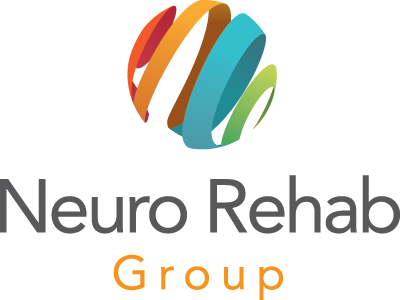What We Offer:
- Interdisciplinary Assessments
- Mental Capacity Assessments
- Challenging Behaviour Intervention
- Functional Goals
- Clear and Agreed Outcome Measurements
- Training
- Sensory Integration Assessment and Treatment
- Dysphagia Assessment and Treatment
- Teletherapy (Telehealth) – Consultations, Assessments and Treatment
- Brain Injury Rehabilitation
Every client is unique and the services will always be tailored to meet the needs of theindividual.
Therapies:
- Occupational Therapy
- Speech and Language Therapy
- Neuropsychology
“Thank you so much in helping me find this confidence, you made a very positive impact in my life!”
Stephen Smith, Student NYCWe would like to thank Rachel very much for her expertise and commitment to helping John overcome his speech and language problems that were a result of an acquired brain injury.
Since Rachel has been working with us we have been delighted with John’s progress. He is now able to speak with confidence and clarity. He has even delivered speeches at the Headway groups! Something that previously we didn’t think possible!
She is always very helpful and encouraging and she has motivated John to take part in a local discussion group.
Elaine and John Wellock - ClientTraining
We believe it is essential that everyone working with the client is supported to understand the challenges met by the client and how they can best support them on a day to day basis.
The clinicians at NRG will always aim to empower everyone who is working and caring for our clients.
We offer a range of training services, including –
- Understanding Acquired Brain Injury
- Communication and Challenging Behaviour
- Eating, Drinking and Swallowing Difficulties
- Understanding Cognitive Communication Disorders
Other training can be provided on request and we would invite you to call to discuss your client’s individual needs.
Mental Capacity Assessments and Supported Decision-Making
The Mental Capacity Act (2005) and Deprivation of Liberty Safeguards (DoLS) protect all members of our society and all our clinicians have a very good knowledge of the MCA (2005).
The Act states that if there is impairment in the functioning of the mind and also a reason to question capacity then the assessment must consider if the person is able –
- to understand the information relevant to the decision
- to retain that information
- to use or weigh that information as part of the process of making the decision
- to communicate his decision (whether by talking, using sign language or any other means)
At NRG, Psychology and Speech and Language Therapy work in partnership to ensure that the client’s ability to make decisions is maximised. We provide the scaffolding some clients require to ensure that their ability to understand, weigh up, retain and communicate their decisions is maximised.
We provide support teams with the skills, knowledge and tools they require to ensure that they are able to empower the client to make as many decisions for themselves as possible. We adopt a supported decision-making approach. This refers to decision making by individuals who are assisted by others to understand, think about and communicate about decisions.
We are also able to assess a person’s capacity for specific decisions and provide clear, written reports on the outcome of the assessment.
Teletherapy
Due to the unprecedented circumstances surrounding the outbreak of COVID-19 have led NRG therapists to undertake consultation, assessment and intervention remotely via telehealth. We have embraced this new approach and have learnt lots along the way.
Challenging Behaviour
The clinicians at NRG have a wealth of experience working with clients in the community who are described as having behaviours which are challenging to services. We are passionate about supporting these clients to continue to live fulfilling lives in their own local communities.
We believe that ‘challenging behaviour’ is often a form of communication and that we need to pay attention and listen to what that person needs to tell us.
We will provide a thorough interdisciplinary assessment, formulation and diagnosis. This will lead to a clear plan which will include positive strategies to support the individual.
We will work in partnership with all those involved in caring for the client.
We recognise and value the family’s essential role in understanding the causes of challenging behaviours and how best to support their family member.
‘It is our belief that people who present behavioural challenges can and should be supported in living close to home, integrated within the community, engaged in activities that promote quality of life and with the support that ensures the protection of their human rights.’ Challenging Behaviour a unified approach – update April 2016
“As a Case Manager, it is really important that I can recommend a speech therapist who is highly specialised, keeps up to date with clinical research, is innovative when it comes to technology, and conducts themselves in a professional yet approachable manner. Rachel and her team meet all of these aspects and I am confident when referring to them. Their report writing and goal setting skills are fantastic.”
Sophie A Jones (nee Benko) Case Manager